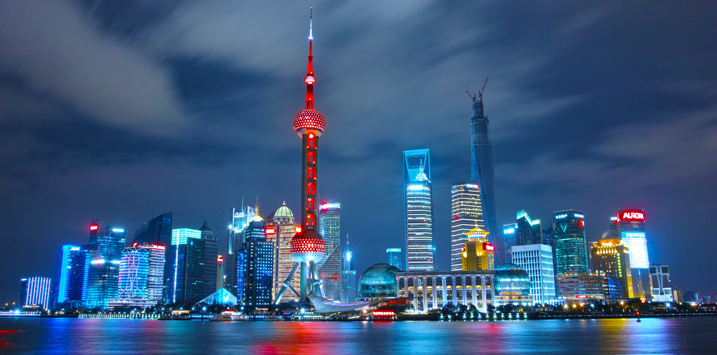
China wakes up, but is the nightmare just beginning?
I have long ignored the reported vicissitudes of China’s economy, unable to reconcile the fact their gross domestic product (GDP) data – obtained from an impossibly large and disparate country – is released more quickly at the end of each month than the U.S. and the data is rarely, if ever, subsequently amended or adjusted. They get it right the first time, every time. A quick look at the piles of junked Chinese products at the local waste disposal centre quickly disabuses one of any belief in China’s systems producing data that is right the first time every time.
Before the advent of economic reforms and trade liberalisation, over four decades ago, China rigidly adhered to centrally dominated policies that rendered its largely agrarian economy stagnant and exceedingly inefficient. Then, detached from global economic dynamics, in 1979, China decisively shifted towards foreign trade, investment, and free-market reforms and positioned itself as one of the pre-eminent global economic powerhouses. Perhaps curiously, China’s GDP growth rate hovered around, and averaged, 10 per cent from 1979 until 2011, pulling an astounding 800 million citizens out of the clutches of poverty and prompting the World Bank to describe the country’s meteoric rise as “the fastest sustained expansion witnessed in any major economy throughout history.” Since 2011, and except for 2021, China’s GDP commenced what appears to be a determined decline with GDP growing at just 2.99 per cent in 2022.
As we noted here in 2014, “it appears that China is waking up from its property dream. Only time will tell whether it was a pleasant one, or a nightmare”, and here at the blog in 2016, “No matter how one analyses the available data, China’s economy has already started to experience a hard landing.”
The ABC’s Ian Verrender recently posted a compelling summary of China’s woes, describing an economic miracle grinding to a halt.
As Verrender notes, in the past few decades, China rapidly transformed from a primarily agricultural nation to a global powerhouse, marking one of the fastest economic shifts in human history. But with this swift rise came unforeseen challenges that are now rocking the country’s economic foundations.
Verrender observes China’s dazzling economic growth was accompanied by the largest and most rapid accumulation of debt ever witnessed, seeping, as it did, into nearly every corner of the nation’s economic fabric. The 2.99 per cent GDP growth of 2022 is but one piece of evidence of the repercussions. The others include a deflating property market, dwindling exports and imports, a significant decrease in foreign investment and 25 per cent youth unemployment, to which China (at the time of writing on 24 August 2023) has subsequently suspended the release of youth unemployment figures. The economic malaise along with an anti-market crackdown on wealth accumulation has also led corporate giants in manufacturing, technology, and property – once dominant on the global stage – to suffer significant losses and in many cases bankruptcy.
“China Evergrande recently announced losses totalling $U.S.81 billion and last week applied for Chapter 15 bankruptcy protection in the U.S.”
Moreover, the sharp rise in youth unemployment suggests deeper structural issues. Importantly for Australia, Verrender notes this alarming trend is not just China’s concern but has ripple effects across nations, including Australia, due to our intertwined trading relationship.
Meanwhile, China’s property market, a beneficiary of debt-fuelled fixed asset funding that dominated economic growth, is showing signs of stress. Both local governments and the general populace are now feeling the sting of a bursting property bubble.
“Real estate prices tanked, developers struggled to raise cash and homeowners were left with massive losses on unfinished apartments. Local governments, meanwhile, which generated income through land sales, have been left out on a limb.”
Verrender notes the widespread financial market concerns this property downturn could lead to broader financial instability.
As we have done here at the blog before, comparing the consequences of China’s aging population to Japan’s before, Verrender also notes China’s current trajectory mirrors Japan’s economic history to some extent. In the late 20th century, Japan experienced rapid economic growth, driven by a thriving property and stock market. However, this boom was short-lived, and Japan entered decades of stagnation following a property market crash.
While there are parallels, the two nations differ in governance. Japan’s democratic structure contrasts with China’s one-party system, with President Xi Jinping’s consolidation of power adding another dimension to China’s economic narrative.
Verrender cites the steps President Xi has taken steps purportedly to achieve “Common Prosperity.” This includes moves to address wealth disparities and recent actions against prominent business figures, such as Alibaba’s Jack Ma, and restrictions on various sectors, including private education and healthcare.
While some view these actions as Xi’s strategy to redistribute wealth, others perceive them as a means to strengthen his hold on power. If the latter, the country is doomed to experience the harsh reality of the economic consequences of dictatorship. As Verrender notes, this consolidation has seen the removal and humiliation of political rivals, adding to the complexity of China’s economic challenges.
Most importantly, China’s economic troubles are resonating globally. Drop a pebble in the middle of a pond and the ripples are felt everywhere. With the international and financial communities keenly watching China’s economic malaise, the silence from Beijing, particularly from President Xi, has raised eyebrows. Beijing’s muted response to the ongoing issues, coupled with its unwillingness to forgive debts to developing nations, underscores the broader geopolitical implications of China’s domestic issues. Something that we, as investors, cannot afford to ignore.
China’s meteoric rise as an economic giant brought with it challenges that the nation is grappling with today. While China’s trajectory might mirror Japan’s past to some extent, its unique political landscape and global influence mean that its economic story will unfold in its own distinct way. What remains evident is that the path China chooses will have repercussions for its citizens, the global economy, and, therefore, investors.